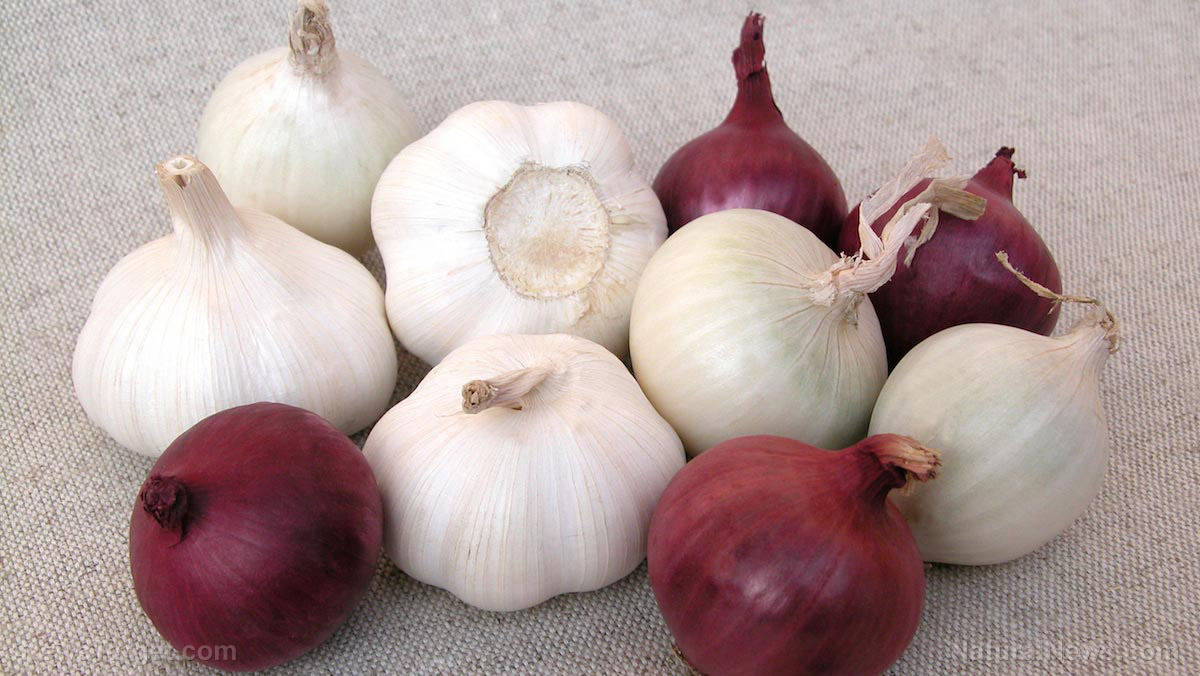The winged-stem passionflower can selectively kill cancer cells, says study
07/29/2020 / By Evangelyn Rodriguez

Studies have described several plants that belong to the Passiflora (passionflower) genus as cytotoxic to cancer cells. These plants have also demonstrated impressive anti-tumor or chemopreventive properties. Notable examples include P. edulis (passion fruit), P. ligularis (sweet granadilla), P. incarnata (maypop) and P. tetrandra (New Zealand passionfruit).
Because of the rising cancer mortality rate and the increasing number of reports about the anticancer potential of Passiflora plants, Brazilian researchers decided to evaluate the cytotoxicity of different Passiflora species cultivated in Brazil. They also identified the mechanisms underlying the cytotoxicity of the most promising plant extract.
The researchers reported their findings in an article published in the Journal of Medicinal Plants Research.
The winged-stem passionflower selectively kills cancer cells
For their experiment, the researchers obtained extracts from the leaves of 14 Passiflora plants using ethanol as solvent. They then evaluated the in vitro toxicity of the extracts using MTT assay at a concentration of 50 mcg/mL.
The researchers also determined the half-maximal inhibitory concentration (IC50) of the most cytotoxic leaf extract against different cancer cells (HCT-116, SF-295, OVACAR-8 and HL-60) and non-cancer cells (PBMC).
Among the tested extracts, the leaf extract from P. alata (winged-stem passionflower) showed the highest cytotoxicity (IC50 = 19.37 mcg/mL), followed by the extracts from P. capsularis (red granadilla) and P. quadrangularis (giant granadilla).
But while the winged-stem passionflower extract easily killed cancer cells, it did not have the same effect on PBMC, suggesting selectivity for cancer cells.
The researchers then used liquid chromatography and mass spectrometry to identify the chemical components of the winged-stem passionflower extract. They also performed morphological analyses, as well as cell cycle and DNA fragmentation analyses, to study the mechanism of cell death induced by the extract in HL-60 (human leukemia) cells.
The researchers linked the cytotoxicity of the winged-stem passionflower extract to the presence of several flavonoids, namely, vitexin, isovitexin, orientin, isorientin, 8-C-glucosyldiosmetin, 6-C-glucosyldiosmetin, 6-C-glucoronylvitexin and 8-C-glucoronylisovitexin. According to studies, these compounds are capable of inhibiting the proliferation of various types of cancer cells.
The cells treated with the winged-stem passionflower extract also showed hallmarks typical of apoptosis (programmed cell death) and necrosis (cell death caused by infections or toxins). The extract induced either by arresting the cell cycle arrest at the G2/M phase.
Based on these findings, the researchers concluded that the winged-stem passionflower can kill cancer cells through the synergistic actions of its flavonoid components.
Fast facts about the winged-stem passionflower
The winged-stem passion flower is native to South America, specifically in eastern Brazil, northeast Peru, Bolivia, Paraguay and Argentina. Locally known as maracuja grande, this climbing shrub is known for producing large, edible fruits and fragrant flowers. Because of the impressive appearance of the latter, the winged-stem passionflower is widely cultivated as an ornamental plant.
The winged-stem passionflower is also known for its medicinal properties. One of the earliest studies on this Passiflora species found that it can induce sleep and improve sleep quality in rats. Extracts from the winged-stem passionflower also showed anxiolytic (anxiety-reducing) activity in later studies.
Another reported benefit of the winged-stem passion flower is that it can increase high-density lipoprotein, or “good” cholesterol levels, which is good for the heart. It can also protect the liver from oxidative damage that can lead to liver failure. Other beneficial properties of the winged-stem passionflower include antioxidant, anti-ulcer and anticonvulsant properties.
Passionflowers are great medicinal plants with plenty of therapeutic applications. Among the more than 500 different species of passionflowers, the most well-known is the maypop (P. incarnata), or the purple passionflower. This plant is now sold as an herbal supplement and, like the winged-stem passion flower, is believed to be an effective remedy for anxiety, insomnia and other nervous disorders.
Sources include:
Redalyc.org [PDF]
Tagged Under: alternative medicine, anticancer, cancer cures, good medicine, herbal medicine, Herbs, natural cures, natural medicine, passionflowers, phytonutrients, plant medicine, research, winged-stem passionflower
RECENT NEWS & ARTICLES
COPYRIGHT © 2017 NATURAL MEDICINE NEWS




















